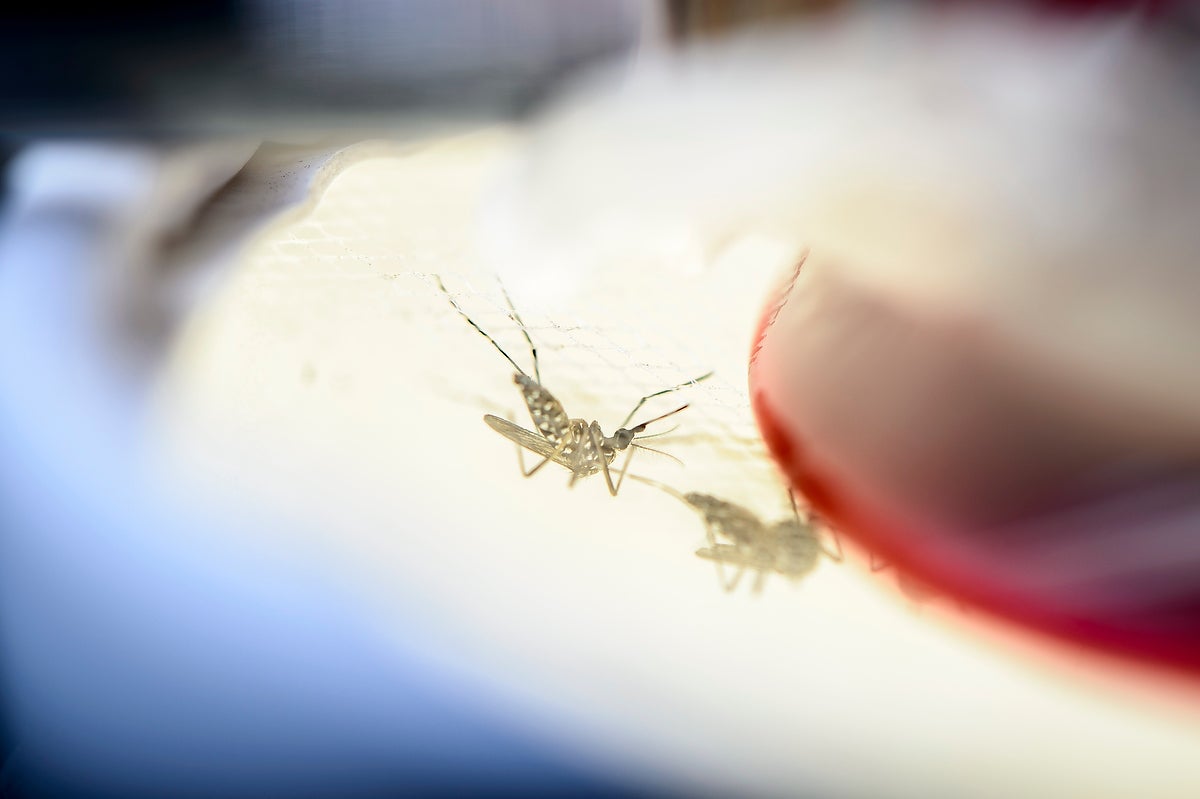Researchers at the University of Wisconsin-Madison said Friday they have taken a step toward blocking transmission of the Zika virus.
Researchers confirmed that when the Aedes aegypti mosquito is harboring the bacteria Wolbachia pipientis, it spreads the benign bacteria during reproduction, but not the Zika virus, according to Matthew Aliota of the UW School of Veterinary Medicine.
Other viruses have seen similar results and the science is promising, Aliota said.
News with a little more humanity
WPR’s “Wisconsin Today” newsletter keeps you connected to the state you love without feeling overwhelmed. No paywall. No agenda. No corporate filter.
“So you’re not getting rid of the mosquito, you’ll still have the mosquito out there,” Aliota said. “But the benefit is you’ll have mosquitoes not capable of transmitting things like dengue, chikungunya or Zika virus. And, the great thing about it is it’s really a low cost strategy and really quite sustainable.”
The mosquito’s active immune system might be responsible for preventing the Zika virus from spreading, Aliota said.
“It makes it essentially an inhospitable environment for the virus to replicate. So then in turn you don’t have transmission of a virus by that mosquito.”
Pilot studies are being conducted in other countries, in part to get citizens comfortable with the idea of mosquitoes being released that won’t infect people with Zika, Aliota said.
The research, a collaboration between UW and Monash University in Australia, was published July 1 in the journal Scientific Reports.
Wisconsin Public Radio, © Copyright 2026, Board of Regents of the University of Wisconsin System and Wisconsin Educational Communications Board.




